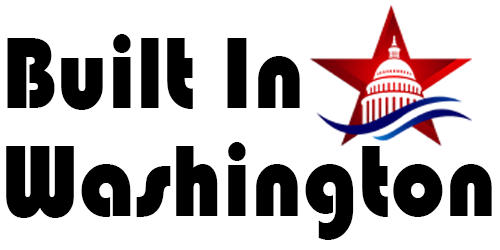H-1B Lottery Controversy: Should Visas Go to the Highest Bidders Instead of Random Selection?

The H-1B visa lets U.S. companies hire skilled professionals for specialty roles in tech, finance, and healthcare (Boundless, USCIS). Each year, demand for H-1B visas far exceeds the supply, so a capped lottery system is used
In 2025, the H-1B visa has sparked heated debate among international talent and U.S. employers. With headlines like “Trump to impose $100,000 fee on H-1B visas” dominating BBC News (BBC) and Reuters (Reuters), the controversy has reached a boiling point. As lawmakers propose shifting from random selection to a bidding system, the question remains: is this a fair solution or another hurdle for global professionals?
Overview of the Current H-1B Process
The H-1B visa lets U.S. companies hire skilled professionals for specialty roles in tech, finance, and healthcare (Boundless, USCIS). Each year, demand for H-1B visas far exceeds the supply, so a capped lottery system is used. For fiscal year 2026, 65,000 standard visas and 20,000 additional ones for advanced degree holders were available distributed strictly by a random lottery if registrations cross the cap (USCIS). Applicants and companies must register online, submit essential documents, and pay the updated $215 electronic registration fee.
The electronic registration process, used since 2020, has streamlined paperwork and reduced fraud (Boundless). Furthermore, only those selected in the lottery can proceed with full petitions, making this step crucial for hopeful applicants. Failure to win selection means exploring alternative visas or waiting for the next year’s cycle, raising anxiety for many skilled workers.
Random vs. Auction: Exploring Alternatives
Traditionally, the H-1B visa lottery has been based purely on chance, but as demand spikes, critics argue that the system feels uneven (Boundless). Some policymakers now suggest visas should go to the highest bidders, proposing an auction-style system over random selection. Supporters believe this would better reflect market needs and generate revenue which, according to recent news, could offset government costs, especially as the Trump administration proposes hefty visa fees (BBC, Reuters).
However, opponents warn that an auction model might advantage wealthy corporations and leave smaller firms and talented individuals lacking deep pockets out in the cold. Reddit threads on “H1B visa Reddit” express concerns about fairness and economic access. Still, the idea of an auction remains active in legislative debates (Bloomberg), with several analysts predicting a fundamental shift in future U.S. immigration if adopted.
Economic Implications for Employers and Talent
Shifting from random draws to a bidding system would drastically change corporate strategies. Large multinationals like Amazon and Google, often referenced in recent articles, could dominate auctions, potentially crowding out startups and smaller businesses (Axios). The current lottery allows new and established companies equal opportunity to secure talent. Auction bidding, however, risks consolidating talent at top firms who can afford the highest costs.
From a financial perspective, employers face rising costs due to Trump’s proposed $100,000 H-1B fee, highlighted in BBC and Reuters reports (BBC, Reuters). These expenses are compounded by regular fees such as visa processing, premium filing, and compliance—fueled further if a bidding system is introduced.
For employees, a market-driven system could impact access for talented graduates, especially those petitioning for H-1B visa to green card pathways (USCIS). Furthermore, questions about processing times and the difficulty of moving from an H-1B visa to a green card are front-of-mind for international professionals competing for U.S. employment.
Stakeholder Reactions and Industry Impact
Employers, immigration attorneys, advocacy groups, and prospective applicants are all weighing in. Tech leaders warn that a move to “highest bidder” could decimate diversity, hampering innovation in the startup ecosystem. USCIS confirms fraud prevention measures remain essential for the current lottery and would need redoubled focus if bidding were introduced (USCIS). Meanwhile, legal sources highlight risks of duplicate entries and stress the importance of transparency in any revised process.
Immigration experts, such as those cited in Boundless and USCIS guides, emphasize that uncertainty in selection impacts both applicant planning and employer hiring cycles (Boundless). Furthermore, Reddit and other forums showcase personal stories of highly skilled professionals losing out not for lack of merit, but purely due to poor lottery odds. As the monetary aspect grows, so does stress over affordability of fees and evolving requirements for 2025.
Voices from the Immigration Community
Controversial changes have mobilized a broad coalition of voices. Immigrants and recruiters, especially from countries like India and Pakistan, discuss their experiences navigating the U.S. immigration maze. High demand for specialized jobs means questions continuously arise: “What jobs qualify for an H-1B visa?” and “Is it difficult to get an H-1B visa in the USA?” Lively discussions on Reddit and expert websites show concern for both meritocracy and affordability, leading to increased debate on social media and news outlets.
Furthermore, job seekers want clarity should they aim for an H-1B or go directly for the green card. Others want practical info: “How many H-1B visas per year?” and, crucially, “What is an H-1B visa application?” As opinions swirl, the feeling is one of uncertainty but persistent hope for a fairer system in the future.
Wrapping Up Insights and Next Steps
Finally, the debate around the H-1B lottery controversy has put America’s talent pipeline into the spotlight. Whether random selection or highest-bidder auction wins out, it is clear that reforms will impact not just business, but thousands of international professionals each year. News outlets like Reuters (Reuters), BBC (BBC), and Bloomberg (Bloomberg) continue covering the shifting landscape, including rising fee structures and ongoing policy debates.
Furthermore, as legislative proposals evolve, it’s crucial for job seekers, HR professionals, and legal advisors to stay updated. For those exploring visa options, learning about the H1B process, requirements, and application deadlines can make a world of difference. Anchor texts throughout this blog link to the essential resources for in-depth guidance and latest updates. As the future of immigration unfolds, a balanced, transparent system accessible to all is the hope for tomorrow’s global workforce.





